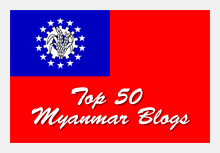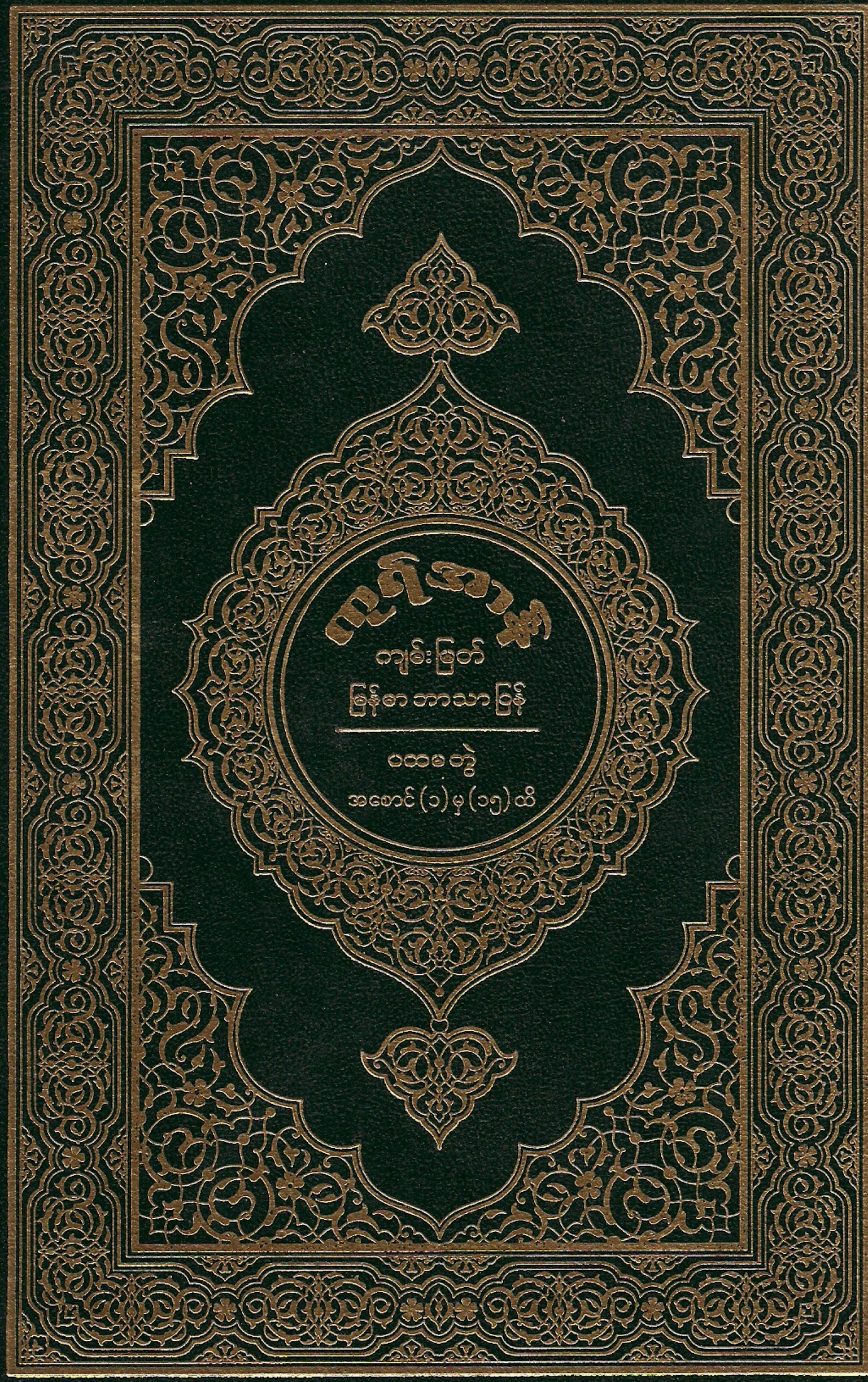Posted on December 10, 2008 by sanooaung
Right of asylum
Right of asylum (or political asylum) is an ancient judicial notion, under which a person persecuted for political opinions or religious beliefs in his or her own country may be protected by another sovereign authority, a foreign country, or Church sanctuaries (as in medieval times). Political asylum should not be mistaken with modern refugee law, which rather deals with massive influx of population, while the right of asylum concerns individuals and is usually delivered in a case-to-case basis. However, the two may somehow overlap, since each refugee may demand to be accorded on an individual basis political asylum. This right has its roots in a longstanding Western tradition—although it was already recognized by the Egyptians, the Greeks and the Hebrews—Descartes went to the Netherlands, Voltaire to England,Hobbes to France (followed by many English nobles during the English Civil War), etc. Each state offered protection to foreign persecuted persons. However, the development in the 20th century of bilateral extradition treaties has endangered the right of asylum, althoughinternational law considers that a state has no obligation to surrender an alleged criminal to a foreign state, as one principle of sovereignty is that every state has legal authority over the people within its borders.
Continue reading →
Filed under: Burma | Leave a comment »
Posted on December 10, 2008 by sanooaung
Original Charter of Fundamental Rights of the European Union
Charter of Fundamental Rights
Filed under: Burma | Leave a comment »
Posted on December 10, 2008 by sanooaung
Charter of Fundamental Rights of the European Union
The Charter of Fundamental Rights of theEuropean Union is a document containinghuman rights provisions, ‘solemnly proclaimed’ by the European Parliament, theCouncil of the European Union, and theEuropean Commission on 7 December 2000. An adapted version of the Charter was proclaimed on 12 December 2007 inStrasbourg, ahead of the signing of theTreaty of Lisbon, which makes the Charter legally binding in all countries except Poland and the United Kingdom. The updated Charter was signed byEuropean Parliament president Hans-Gert Poettering, European Commission president José Manuel Barroso, and Portuguese prime minister José Sócrates, at the time President of the Council of the European Union.[1]
Continue reading →
Filed under: Burma | Leave a comment »
Posted on December 10, 2008 by sanooaung
International Covenant on
Economic, Social and Cultural Rights
The International Covenant on Economic, Social and Cultural Rights (ICESCR) is a multilateral treaty adopted by the United Nations General Assembly on December 16, 1966, and in force from January 3, 1976. It commits its parties to work toward the granting of economic, social, and cultural rights (ESCR) to individuals, includinglabour rights and rights to health, education, and an adequate standard of living. As of September 26, 2008, the Covenant had 159 parties.[1] A further six countries had signed, but not yet ratified the Covenant.
The ICESCR is part of the International Bill of Human Rights, along with the Universal Declaration of Human Rights (UDHR) and theInternational Covenant on Civil and Political Rights (ICCPR), including the latter’s first and second Optional Protocols.[2]
The Covenant is monitored by the UN Committee on Economic, Social and Cultural Rights.
Continue reading →
Filed under: Burma | Leave a comment »
Posted on December 10, 2008 by sanooaung
International Covenant on Civil and Political Rights
The International Covenant on Civil and Political Rights is aUnited Nations treaty based on the Universal Declaration of Human Rights, created in 1966 and entered into force on 23 March 1976. Nations that have ratified this treaty are bound by it.
The International Covenant on Civil and Political Rights is monitored by the Human Rights Committee (a separate body to the Human Rights Council which replaced the Commission on Human Rightsunder the UN Charter in 2006) with permanent standing, to consider periodic reports submitted by member States on their compliance with the treaty. Members of the Human Rights Committee are elected by member states, but do not represent any State. The Covenant contains two Optional Protocols. The first optional protocol creates an individual complaints mechanism whereby individuals in member States can submit complaints, known as communications, to be reviewed by the Human Rights Committee. Its rulings under the first optional protocol have created the most complex jurisprudence in the UN international human rights law system.
Continue reading →
Filed under: Burma | Leave a comment »
Posted on December 10, 2008 by sanooaung
Convention on the Elimination of
All Forms of Racial Discrimination
The International Convention on the Elimination of All Forms of Racial Discrimination (ICERD) is a United Nations convention. Asecond-generation human rights instrument, the Convention commits its members to the elimination of racial discrimination and the promotion of understanding among all races.[1] The convention was adopted and opened for signature by the United Nations General Assembly on December 21, 1965,[2] and entered into force on January 4, 1969. As of June 2, 2008, the Convention had 173 parties.[3] A further six countries (Bhutan, Djibouti, Grenada, Guinea-Bissau, Nauru, and Sao Tome and Principe) have signed, but not yet ratified the Convention. Another 13 nations are not party to it.
Continue reading →
Filed under: Burma | Leave a comment »
Posted on December 10, 2008 by sanooaung
Human writes
Extracts from Dean Johns’ article in Malaysiakini
If wish to read all of the article, kindly contribute by subscribing Malaysiakini
As a human who happens to write, I most of all love to write in support of human rights. It’s the worthiest possible cause. It puts me in the best possible company. And it gives me at least a grain of hope that I can help right some human wrongs.
It also reminds me how fortunate I am, as a citizen of a relatively free country, to enjoy the right to write in comparative safety – unlike fellow writers in so many countries around the world who constantly put their liberty and even their lives on the line.
Billions of our fellow humans are largely or totally deprived of their rights by rotten regimes in a depressingly long roll-call of countries including Burma, China, Vietnam, North Korea, Cuba, Haiti, the Congo, Eritrea, Sudan, Niger, Chad, Saudi Arabia, Libya, Morocco, Syria, Somalia, Kazakhstan, Uzbekistan and Zimbabwe.
Continue reading →
Filed under: Burma | Leave a comment »
Posted on December 10, 2008 by tunaung
UNIVERSAL DECLARATION OF HUMAN RIGHTS
Preamble
Whereas recognition of the inherent dignity and of the equal and inalienable rights of all members of the human family is the foundation of freedom, justice and peace in the world,
Whereas disregard and contempt for human rights have resulted in barbarous acts which have outraged the conscience of mankind, and the advent of a world in which human beings shall enjoy freedom of speech and belief and freedom from fear and want has been proclaimed as the highest aspiration of the common people,
Continue reading →
Filed under: Burma | Tagged: Universal Declaration of Human Rights | Leave a comment »
Posted on December 10, 2008 by tunaung
By : Djoko Susilo
Almost a year ago, at a meeting of parliamentarians of the Association of Southeast Asian Nations, I urged the ASEAN states to freeze Myanmar’s membership from the 10-member grouping since there had been no serious political will to implement democracy and protect human rights, such as by releasing its jailed political opponents — especially Daw Aung San Suu Kyi from her house detention.
Last year’s incidents in Myanmar proved that such a call is indeed still valid and it will still be valid until the domestic situation in that country moves toward democracy.
The violent crackdown and the junta’s brutality against the peaceful demonstrations of the Buddhist monks — who were supported by the Myanmarese people — were well documented and widely known throughout the international community, yet the junta recently tried to fool the world by announcing a so-called general election.
Read more>>
Filed under: Burma | Tagged: ASEAN, Burma, Daw Aung San Suu Kyi, Human Rights, Myanmar | Leave a comment »
Posted on December 10, 2008 by sanooaung
UN Urged to Expand Ability on Preventing Atrocities
NEW YORK — The United Nations must put more effort into prevention of genocide through diplomacy and must also be prepared to defend civilians from mass killings when necessary, an anti-genocide group advised Tuesday.
On the group’s “red alert” watch list of the countries of most concern for genocide are Sudan, Burma, Somalia, Iraq, Pakistan, the Democratic Republic of Congo, Sri Lanka and Afghanistan.
The Genocide Prevention Project is focusing on the UN because it believes a multilateral approach is the best way to tackle the problem, said Jill Savitt, the project’s director.
Continue reading →
Filed under: Burma | Leave a comment »
Posted on December 10, 2008 by tunaung
Chiang Mai (Mizzima) – At least eight ministers in the cabinet of Burma’s military government along with the mayor of Rangoon will resign from their current positions in preparation to contest the upcoming 2010 election, a source in the military said.
According to the source in Naypyitaw, ministers from the Ministries of Forestry, Construction, Immigration & Population, Livestock Breeding & Fisheries, Transport, Agriculture & Irrigation, Industry (1), Communication, Posts & Telegraphs, in addition to the mayor of Rangoon, will soon retire from their positions as part of the lead up to the 2010 general election.
Despite criticism from the political opposition, Burma’s military junta is determined to carry out its planned seven step roadmap, which includes the general election as its fifth component.
Read more>>
Filed under: Burma | Tagged: Burma's military dictators, Burmese politics, Burmese Way to Democracy | Leave a comment »
Posted on December 10, 2008 by sanooaung
Comment: Yes I agree. There are many specialists who are behaving foolishly. These specialists are the ones suffering from “mental woes”.
IN response to the letter from Janet Kochap pan, “Housemen do not have it easy” (The Star, Dec 3), I, the mother of a senior doctor in the Johor Baru hospital, have seen the sad and degrading treatment given to medical officers even after they finish their housemanship.
Continue reading →
Filed under: Burma | Leave a comment »
Posted on December 10, 2008 by tunaung
By:SAW YAN NAING
More than 100 Burmese migrant workers have returned to Burma over the last week after losing their jobs in Malaysia due to the impact of the global economic slowdown, according to a labor rights group in Malaysia.
The secretary of the Malaysia-based Burma Workers’ Rights Protection Committee (BWRPC), Ye Min Tun, said that some 118 Burmese migrants, working mostly in Malaysian capital Kuala Lumpur, were sent back to Burma on December 6 and 8 by their employers after their companies had cut back on staff due to falling orders and a decrease in business.
Read more>>
Filed under: Burma | Tagged: Burmese migrant workers, Malaysia | Leave a comment »
Posted on December 10, 2008 by sanooaung
Leaders should understand, on this Human Rights day, that those who defend and use the service of the organizations or forces as RELA are responsible for the Human Rights violations of those armed or civilian forces.
I REFER to the report “No plans to disband Rela, says Syed Hamid” (The Star, Dec 8) in which Home Minister Datuk Seri Syed Hamid Albar was quoted as saying that Rela has served the country well and has a useful purpose.
Continue reading →
Filed under: Burma | Leave a comment »












+(Small).jpg)


You must be logged in to post a comment.